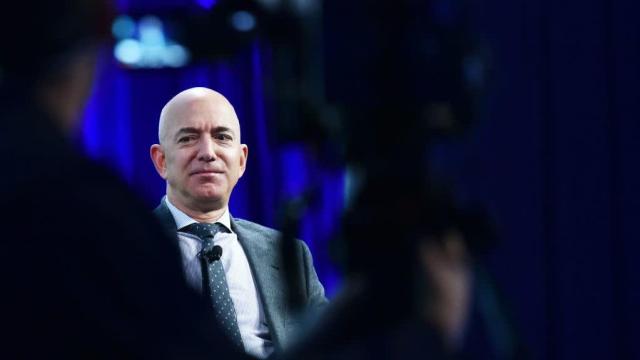Despite deserved outrage for paying effectively $0 in U.S. federal income taxes two years running, Amazon would like us to believe it has become a model corporate citizen. They even blogged about it!
Unsurprisingly, the story Amazon weaves about itself is held together largely by half-truths and misrepresentation. “Amazon has a $US15 ($22) minimum wage,” the post brags, neglecting that the base pay raise reportedly came at the expense of a variety of repeal a payroll tax on large employers that would have earmarked money for exactly the same cause.
But of course, the meat of this piece of hagiography is Amazon’s supposed tax contributions—something lawmakers, most vocally U.S. Senator Bernie Sanders, have bludgeoned the company with in recent months. Backlash like this tends to happen when the second-largest employer in the U.S. pays effectively no federal income tax.
“We follow all applicable federal and state tax laws, and our U.S. taxes are a reflection of our continued investments, compensation of our employees, and the current tax rules,” Amazon states before claiming waiving three big numbers in front of us bumpkins (emphasis theirs): “$US1 ($1) billion in federal income tax expense, more than $US2.4 ($4) billion in other federal taxes, including payroll taxes and customs duties,” over “$US1 ($1).6 billion in state and local taxes, including payroll taxes, property taxes, state income taxes, and gross receipts taxes;” and it says it “collected and remitted nearly $US9 ($13) billion in sales and use taxes to states and localities throughout the U.S.”
According to Matthew Gardner, a senior fellow with the Institute on Taxation and Economic Policy, these numbers are, at best, misleading.
“You look at the different types of taxes that they’re collecting here—and they don’t say ‘pay’, they say ‘collect’—and there’s a reason for that. The biggest number on this list is the sales and use tax,” Gardner told Gizmodo in a phone interview today, “it’s not a tax that Amazon meaningfully pays itself. The company collects the tax on behalf of purchasers, and it’s universally understood that it is the consumer who pays this tax.” For those who remember Amazon’s earlier days, sales tax was also something the company vehemently fought against having to pay, finally losing that significant competitive advantage in 2017.
As with sales tax, Gardner takes issue with Amazon trying to score points for listing its payroll tax numbers for 2019. “It’s universally understood that the payroll tax falls on employees in the form of reduced wages. It’s not meaningfully a tax on businesses,” he said. “Congratulating yourself as an employer for collecting the payroll tax is like congratulating yourself for remembering to breathe. It’s pretty hard not to do it.”
But perhaps the biggest deflection is Amazon’s claim of $US1 ($1.5) billion in federal income tax. That number encompasses the $US162 ($242) million it actually expects to pay for 2019, as well as an additional $US914 ($1,366) million the company plans to differ indefinitely. Statutorily, the corporate tax rate in the U.S. stands at a measly 21 per cent; with $US13.2 ($20) billion in corporate income for last year, that considerably more modest $US162 ($242) million in expected federal taxes puts Amazon at an effective tax rate of 1.2 per cent.
Don’t all clap at once. And maybe avert your eyes from the estimated $US950+ million ($1.42 billion+) Amazon soaked up in state and local subsidies last year alone.
While that $US162 ($242) million represents a good-faith estimate of the actual bill, nothing is yet set in stone, and even within that small, nearly meaningless increase in federal income tax, there remains the possibility Amazon will still pay nothing at all. “The reason is something called uncertain tax benefits,” Gardner explained. “The SEC requires companies like Amazon—any publicly traded company—to, as they’re presenting this number—here’s our tax bill for 2019—evaluate all the tax breaks they’re claiming to get there, and figure out how much of those tax breaks they’re unlikely to get away with.”
Typical of the company’s strategy towards damn near everything, Amazon aggressively court these sorts of iffy savings options, and 2019 is looking at over $US700 ($1,046) million in potential reductions. Given that these sorts of SEC forms are the only real window for researchers like Gardner to take an educated guess at actual rates, he noted that, in the case of Amazon or any other public company, “we may never know the final income bill.”
Amazon declined to provide a comment for this story.
